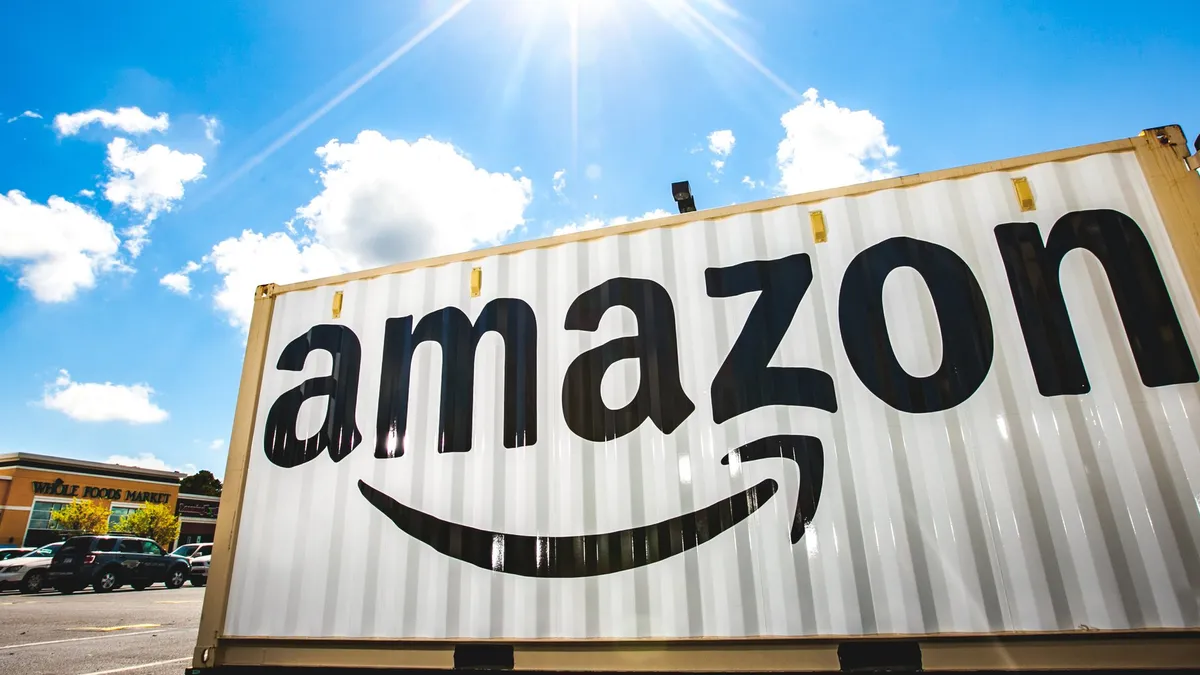Dive Brief:
- Amazon is seeking permission to launch 3,236 satellites into space to create a global broadband internet network, according to documents it filed with the Federal Communications Commission (FCC) last week.
- A company subsidiary, Kuiper Systems, says its "Project Kuiper" wants to place the satellites at altitudes between 366 and 391 miles above sea level so it can provide high-speed internet to home and business users worldwide.
- Amazon also said it wants to provide greater mobile broadband connectivity to underserved parts of the world, as well as to aircraft, ships and submarines. Amazon and Kuiper Systems offered no timeline for deployment, although it will require FCC approval to move forward.
Dive Insight:
In its filing, Amazon cites the FCC’s ongoing efforts to close the digital divide and encourage more fixed broadband access in the U.S. It also says Amazon "shares the FCC’s vision" of ensuring access to everyone. But the company came under fire with the FCC for some aspects of its broadband mapping, including its declaration that a ZIP code is “served” by broadband if it has been provided to only one home in an entire service block by an internet service provider (ISP).
Commissioner Jessica Rosenworcel has been especially critical of the FCC’s broadband mapping methodology, saying in prepared testimony at a May hearing of the U.S. House Energy and Commerce Committee's Subcommittee on Communications and Technology that having inaccurate maps is "wasteful and irresponsible."
And while a draft FCC report circulated in February found that 19.4 million Americans lacked access to fixed broadband, down from 26.1 million at the end of 2016, critics have wasted little time pushing the FCC to do better, with bipartisan bills introduced in Congress to improve mapping and access.
There are a smorgasbord of ideas about how to close the digital divide and offer better internet access, with some suggesting 5G could be the silver bullet both for rural communities and cities. Some have suggested that cities could follow the lead of Chattanooga, TN and others to consider internet as a publicly-regulated utility, as another way to foster universal access.
Providing satellite-based internet will be expensive and present many challenges. But satellites have been used for decades to provide television service, so advocates could argue the satellites can have new uses, including getting more people connected to the internet.












